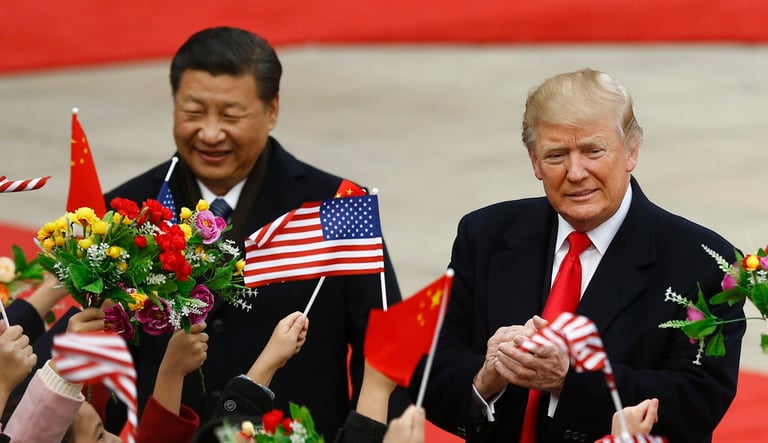Xi Jinping Terrified of Trump: Reports China Observer
WORLD


In the early hours of June 13, a wave of coordinated airstrikes by U.S. and Israeli forces devastated Iran’s core military infrastructure.
F-35 fighter jets reportedly evaded Iranian air defenses, followed by high-altitude B-2 stealth bombers. Tomahawk cruise missiles were launched in succession from U.S. naval vessels.
Within hours, key nuclear facilities, radar stations, underground command centers, and air defense hubs were severely damaged.
Iran’s ability to coordinate a response appeared to collapse.
But the most surprising silence, according to the China Observer, came not from Tehran — but from Beijing.
Despite being Iran’s largest trading partner and a consistent critic of U.S. military interventions, China’s official response was restrained.
The Foreign Ministry issued a brief statement expressing "deep concern" and reiterating China’s opposition to "violations of sovereignty." State media relayed the message quietly, without any sign of urgency or condemnation.
On June 14, Chinese Foreign Minister Wang Yi spoke with his Iranian counterpart, using the phrase “clearly condemn” in reference to the strike. But the following day, in a call with Israel’s Foreign Minister, the tone shifted. Wang stated that China “opposes the use of force” — notably omitting any direct criticism or calls for accountability.
According to commentary from China Observer, a dissident-aligned outlet that tracks Beijing’s international posture, this muted response may reflect something deeper: fear.
The overwhelming speed and precision of the U.S.-led strike served as a blunt demonstration of modern stealth warfare capabilities. China, like Iran, heavily relies on fixed-site military infrastructure — much of it publicly known and potentially vulnerable.
While China has invested heavily in air defense systems and strategic redundancy, the fact that a U.S.-Israel coalition could dismantle Iran’s hardened defenses in under 72 hours has raised concerns in Beijing, according to the Observer.
Many experts suggest that such an operation — executed with minimal warning and no leaks — would have been nearly unthinkable during earlier U.S. administrations.
China has not raised the matter at the UN, nor has it issued any new diplomatic initiatives in response to the strike.
As the China Observer analyst bluntly put it:
“Beijing isn’t just worried about Iran. It’s terrified of what a Trump-led America might do next.”